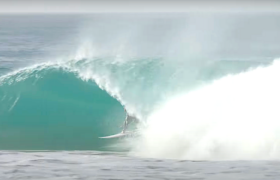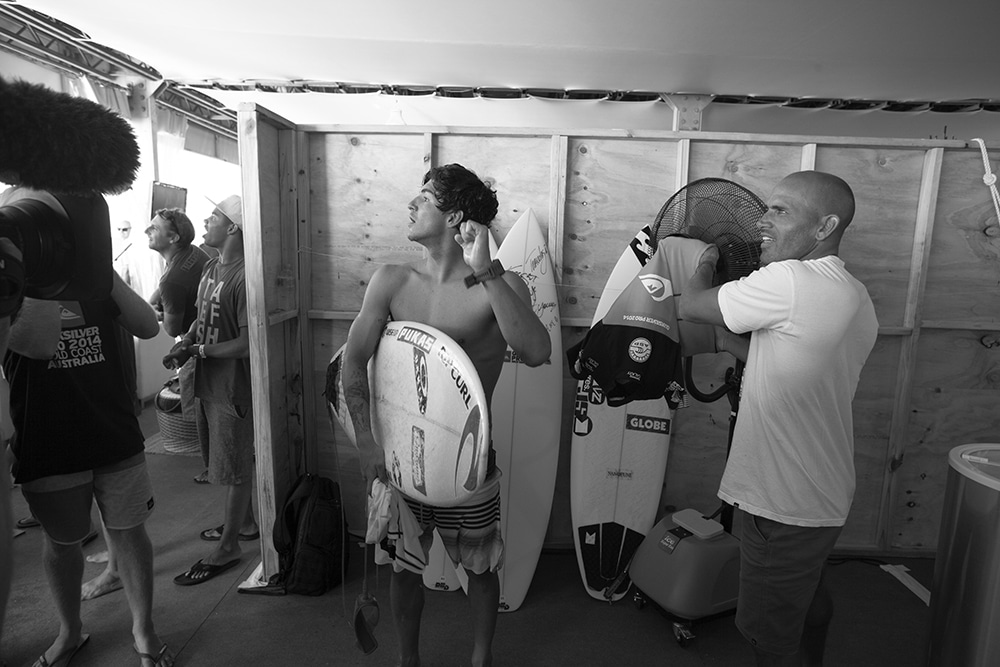Did you really think that magnetic band was going to save you?
I’ve got a pretty healthy relationship with sharks, I think. I avoid where the more invasive and formidable of the species live (no Byron, Western Australia, South Africa, South Oz) and choose my holidays and home town accordingly.
If I see a whaler, even a tiger, I’ll usually, but not always, exit. It depends on their trajectory. That’s because they don’t nail me to the spot with horror the way a great white does. If a white is within a mile radius I’m out… for good. Who wants to be the bloody spittle in an abominable monster’s month, screaming in unspeakable agony as it tears you apart?
Nets? I couldn’t care either way. They obviously work but who’s got the energy to debate the merits with the hysterics who claim ’em to be pointless and pointlessly cruel.
One thing that does interest me is shark repellents. Do you remember the fever when news came out years ago that a company in South Africa had developed electronic devices that had been proven to keep whites away? It felt like we’d soon have little anti-shark chips built into our boards protecting us with invisible forcefields.
Never really happened, did it?
A few weeks ago, the Australian consumer magazine Choice tested all the shark repellents on the market, from electronic devices that cost between $US350 and $US600 to those thirty-buck magnet wristbands. The results are illuminating.
An earlier study by the South Australian Research and Development Institute also found the device was effective in deterring great whites, but noted it didn’t ‘deter or repel this species in all situations, nor did it repel all individuals’.
For electronic devices like the Shark Shield: “While Shark Shield can deter a shark from attacking, it won’t do so every time. The most recent study of the device by scientists at the University of Western Australia (UWA) found it prevented great whites and tiger sharks from attacking most of the time, but it wasn’t always effective. An earlier study by the South Australian Research and Development Institute also found the device was effective in deterring great whites, but noted it didn’t ‘deter or repel this species in all situations, nor did it repel all individuals’.” So, yeah, uh, it works, but, uh, not all the time.
Magnet wristbands: “Sharkbanz told us its device has been shown to repel a range of sharks, including bull sharks and small tiger sharks, but they don’t recommend it for deterring great whites. Shark Shocker didn’t respond to our requests for information on its testing.
“While there have been no independent studies on the Sharkbanz or Shark Shocker devices, research into using magnets to repel sharks from commercial fishing lines has generally been inconclusive as to their effectiveness.
“Dr Carl Meyer, a shark expert at the Hawaii Institute of Marine Biology, told us that while magnets could work in theory, he isn’t convinced a small magnetic band strapped to a leg would be effective enough.”
Acoustic repellents: “Killer whales like to eat sharks, so does pretending you’re an orca stop a shark from biting you? That’s the idea behind the SharkStopper personal shark repellent, the “world’s first and only acoustic shark repellent”, due for release early this year. The device is a small plastic band that’s worn on the leg and emits a “multi-patented acoustic sound” – a blend of orca calls and a special frequency its maker says will repel sharks.
“But UWA scientists recently found orca calls had limited ability at deterring sharks in the wild. And Dr Christine Erbe, a whale vocalisation expert at Curtin University, told us that orcas live in social groups – meaning a killer whale vocalisation that works in one place, may not necessarily work elsewhere.”
Coloured surfboards: “‘White, yellow and silvery things are more likely to be approached and bitten by some shark species than blue and green things,’ says Dr Nathan Hart, a neurobiologist from Macquarie University who has studied the visual systems of sharks.
“Hart says there’s one downfall though. When viewed from directly below, a surfboard will be seen as a dark silhouette, regardless of its colour. Still, he says a darker board might reduce the risk of a shark attack from the side, and could be worth a try.”








